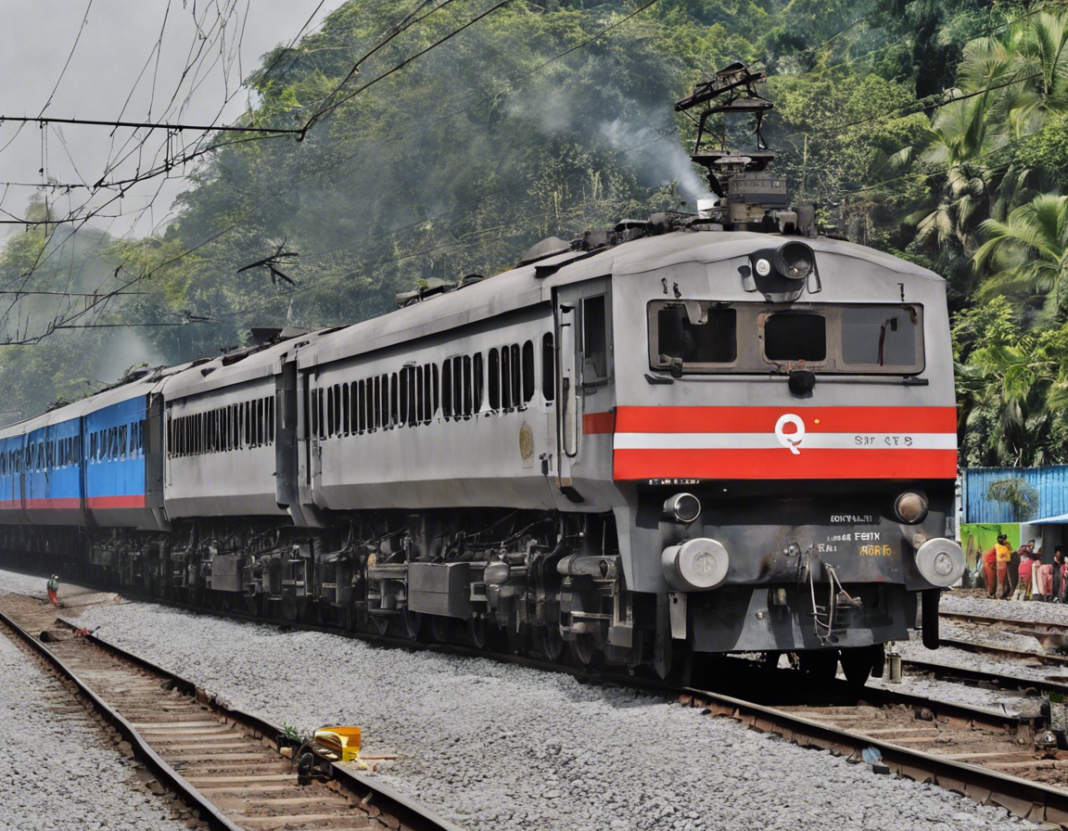As a Railway Protection Force (RPF) Constable or Sub-Inspector (SI), the primary duty is to ensure the safety and security of passengers, railway property, and infrastructure. RPF personnel play a crucial role in maintaining law and order within the rail network, preventing crimes, and responding to security threats. Let’s delve into the detailed responsibilities and duties of RPF Constables and SIs to understand the crucial role they play in ensuring the safety and security of Indian Railways.
Duties of RPF Constables and SIs
Patrolling and Surveillance
-
Regular Patrolling: RPF Constables and SIs conduct patrols on trains, platforms, and railway premises to deter criminal activities and ensure a visible security presence.
-
Surveillance: Monitoring suspicious activities, identifying potential security threats, and taking preemptive actions to maintain safety and security.
Crowd Management
-
Crowd Control: Managing large crowds during peak hours, special events, or emergencies to prevent stampedes, escalations, or any untoward incidents.
-
Ensuring Order: Maintaining order among passengers, resolving disputes, and preventing conflicts that may disrupt railway operations.
Crime Prevention and Detection
-
Identifying Criminal Activities: RPF personnel are trained to recognize signs of potential criminal activities such as theft, vandalism, or trafficking and take appropriate actions.
-
Investigation Support: Assisting in the investigation of crimes, gathering evidence, and cooperating with law enforcement agencies to bring perpetrators to justice.
Emergency Response
-
Quick Response: Being prepared to respond promptly to emergencies such as accidents, medical crises, fires, or security breaches.
-
Evacuation Assistance: Guiding passengers to safety during emergencies and coordinating with other authorities for timely evacuation and rescue operations.
Passenger Assistance
-
Helping Passengers: Assisting elderly, disabled, or distressed passengers, providing information about train schedules, facilities, and emergency protocols.
-
Security Advice: Educating passengers about security measures, encouraging vigilance, and promoting a culture of safety awareness among travelers.
Collaboration with Other Agencies
-
Coordination: Working closely with local police, railway authorities, and other security agencies to ensure a cohesive approach to safety and security.
-
Intelligence Sharing: Sharing intelligence reports, participating in joint operations, and leveraging resources for comprehensive security coverage.
Importance of RPF Constables and SIs in Railway Safety
The presence of well-trained and vigilant RPF Constables and SIs is essential for maintaining the security of railway passengers, staff, and assets. Their proactive measures help prevent criminal activities, ensure a safe travel environment, and build trust among passengers. Here are some key reasons why RPF personnel are crucial for railway safety:
-
Crime Deterrence: The visible presence of RPF personnel acts as a deterrent to potential criminals, reducing the likelihood of theft, assault, or vandalism on trains and at stations.
-
Emergency Response: In times of crisis, RPF Constables and SIs play a critical role in coordinating emergency response efforts, ensuring the safety and well-being of passengers.
-
Public Confidence: Passengers feel more secure knowing that trained security personnel are present to handle any security-related issues promptly and professionally.
-
Collaborative Approach: By working in collaboration with other law enforcement agencies, RPF personnel contribute to a comprehensive security framework that covers all aspects of railway safety.
-
Preventative Measures: Through surveillance, patrolling, and crime prevention initiatives, RPF Constables and SIs actively work towards preventing security incidents before they occur.
Frequently Asked Questions (FAQs) about RPF Constables and SIs
Q1: What are the eligibility criteria to become an RPF Constable or SI?
A: To qualify for RPF Constable, candidates must have passed Class 10th, while for RPF SI, a minimum educational qualification of graduation is required. The recruitment process also includes physical efficiency tests and written examinations.
Q2: What kind of training do RPF Constables and SIs undergo?
A: RPF personnel receive training in various aspects, including crowd management, crime detection, self-defense, first aid, handling of weapons, and emergency response protocols.
Q3: How are RPF Constables and SIs different from local police officers?
A: While local police officers have jurisdiction over specific areas, RPF personnel have authority within the railway network and are responsible for ensuring the safety and security of passengers and railway property.
Q4: Can RPF Constables and SIs make arrests?
A: Yes, RPF Constables and SIs have the authority to make arrests, investigate crimes within the railway premises, and hand over the suspects to the local police for further legal proceedings.
Q5: What should passengers do in case of an emergency on a train?
A: Passengers should remain calm, follow the instructions of RPF personnel, move to designated safe zones if directed, and contact the authorities through emergency helplines or communication systems available on the train.
Conclusion
In conclusion, RPF Constables and SIs play a pivotal role in ensuring the safety and security of Indian Railways. Their duties encompass a wide range of responsibilities, from patrolling and surveillance to crime prevention, emergency response, and passenger assistance. By upholding law and order, responding to security threats, and fostering a culture of safety, RPF personnel contribute significantly to the smooth functioning of the railway network. Through continuous training, collaboration with other security agencies, and proactive measures, RPF Constables and SIs uphold the motto of “Safety First” for all passengers and staff traveling on Indian Railways.






